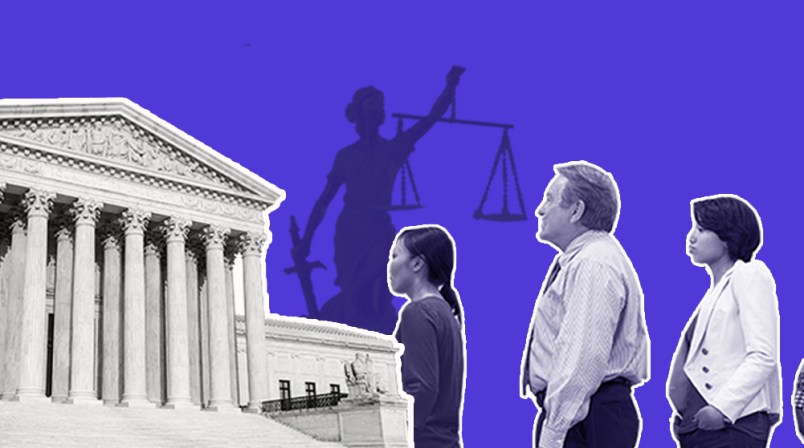This piece is part of our weekly Prime series on voting rights, but it has been moved outside of the paywall while we cover COVID-19.
Trial In Blockbuster Ex-Felon Voting Rights Case Begins. In a federal court house in Florida, a trial is beginning Monday in the case brought against Florida’s so-called ex-felon “poll tax” law. With the rights of hundreds of thousands of people at stake, this case is among the biggest voting rights fights this election cycle, even as the pandemic scrambles elections. The 2019 law was passed just months after Florida voters approved of a constitutional amendment that granted some 1.4 million ex-felons the right to vote. Republicans sought to undermine the initiative by imposing a requirement that those ex-felons pay off all of their court fines — including administrative fees not associated with their sentences — before regaining the franchise. Only one-in-five otherwise eligible ex-felons have fully paid off those fees. So far, the judge, in preliminary orders, has curtailed the effect of the law, while the Florida GOP has fought tooth and nail to see it fully implemented.
Dems Claim Victory In Michigan Absentee Voting Dispute: Michigan has reformed some of its voter signature matching policies after Democrats brought a lawsuit challenging the state’s practices for its lack of due process procedures. The lawsuit was filed before the outbreak had hit the U.S. in earnest, as Michigan already was scaling up its absentee voting due to a change in the law. Michigan has now changed its policies so that election officials notify voters whose signatures don’t match on the ballot so that those voters can fix the discrepancies.
Dems Sue To Expand Absentee Voting In South Carolina: Democratic groups are asking South Carolina’s Supreme Court to declare the need to socially distance in the pandemic as valid excuse for absentee voting under the state’s law. South Carolina is one of about a half-dozen states that have not fully opened up absentee voting for the coronavirus outbreak.
N.C. Purge Lawsuit Heats Up: Voting rights groups are seeking to intervene in a purge lawsuit brought in North Carolina by conservative groups known for pushing restrictive voting policies. The lawsuit, which uses a methodological approach that has long been criticized by election experts, alleges that two North Carolina counties have “implausibly high” voter registration numbers. If allowed to intervene, the voter groups will argue that the accusations are flawed and that the purges being sought are a violation of federal law.
Voter Registration Efforts Take A Hit In The Pandemic: Reports in the Guardian and Fulcrum highlight how the coronavirus outbreak is making it harder to register to vote in some places. In-person voter registration drives are now essentially impossible and with DMVs being closed or scantly used amid the pandemic, voter registration won’t be happening that way either. The use of naturalization ceremonies to encourage registration is largely on hold as well. This challenge is especially problematic given that the success of mail-in-voting operations depends on voter rolls being up to date. The obstacles are mitigated somewhat in places where online registration is available. Where it’s not, creative efforts have been launched, like a Democratic initiative in Texas that allows voters to digitally send their registration to the Democratic Party, which will in turn mail their application, postage included, to election officials.







What is Florida’s GOP up to here? (Hint from American History 101 Cliff Notes: Ask any Black person over the age of fifty-five. Do it while walking side-by-side over the Edmund Pettis Bridge.)